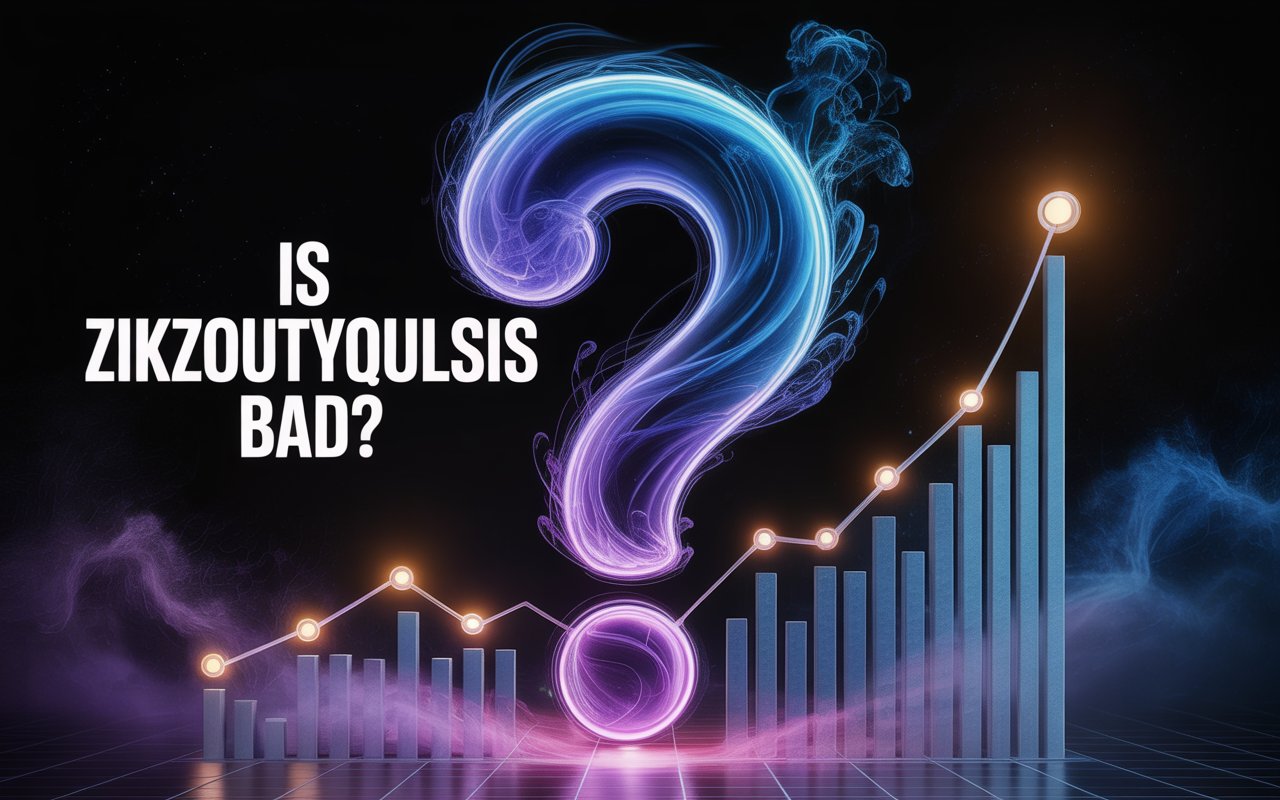Introduction
In the age of rapidly evolving technology, strange and unfamiliar terms often appear, leaving people asking questions like: is zikzoutyqulsis bad? The phrase may sound unusual, but it has sparked curiosity, debate, and even confusion across digital communities. To answer it, we need to look at what zikzoutyqulsis means, how it is being used, and whether it poses any real risks or potential benefits. Like any new concept, it deserves careful evaluation instead of rushed judgment. This article takes a deep dive into the phenomenon—breaking down its basics, implications, common challenges, and strategies for navigating it safely.
What is Zikzoutyqulsis? Understanding the Basics
Before we can assess is zikzoutyqulsis bad, we must first understand what it represents. While the term may not be mainstream, it has become associated with a digital trend, emerging behavior, or tool that raises questions about safety, credibility, and long-term consequences.
- Definition: Zikzoutyqulsis refers to an unfamiliar or questionable online entity, product, or practice that has yet to be fully validated.
- Perception: Some users see it as a harmless experiment, while others suspect it could be misleading, risky, or even manipulative.
- Context: Like many viral terms, zikzoutyqulsis may circulate in forums, websites, or social platforms where information spreads quickly but isn’t always reliable.
By starting with this foundation, we can now explore whether the risks outweigh the rewards.
Why Does Zikzoutyqulsis Matter? Importance and Benefits
Even if people ask is zikzoutyqulsis bad, the truth is, it wouldn’t be talked about if it didn’t hold some importance. Here’s why:
- Awareness of Online Risks
Questioning unfamiliar terms trains people to think critically about what they encounter online. - Potential Opportunities
Some concepts that sound questionable at first turn out to be innovative ideas that simply lack mainstream acceptance. - Community Engagement
Discussions around zikzoutyqulsis drive digital literacy, encouraging users to research before jumping to conclusions.
In short, whether it turns out positive or negative, zikzoutyqulsis is important because it sparks awareness and forces caution in an era of information overload.
Is Zikzoutyqulsis Bad? Weighing Risks and Concerns
To fairly answer this question, we must examine possible downsides:
- Misinformation
- Many obscure terms exist only to mislead users or trick them into unsafe practices.
- If zikzoutyqulsis falls into this category, users may waste time or resources.
- Security Risks
- Clicking on suspicious links or downloads tied to zikzoutyqulsis could expose users to malware, scams, or phishing attacks.
- Lack of Clarity
- Because the concept is vague, people may misinterpret its use, leading to confusion or poor decisions.
So, is zikzoutyqulsis bad? The answer depends on how and where it is applied. Without research and safeguards, it may carry risks.
Common Mistakes When Dealing with Zikzoutyqulsis
Users often make errors when navigating unfamiliar online concepts like zikzoutyqulsis:
- Assuming it’s harmless without verification
- Spreading rumors that amplify misinformation
- Clicking random links without validating the source
- Overhyping potential benefits without testing or evidence
These mistakes increase the chances of negative outcomes, reinforcing the need for cautious evaluation.
Strategies for Safe Navigation
If you’re still unsure whether is zikzoutyqulsis bad, here are practical steps to approach it wisely:
- Research Extensively
Look for multiple independent sources before trusting anything tied to zikzoutyqulsis. - Check Credibility
Verify if the platforms or people promoting it have a solid track record. - Use Cybersecurity Tools
Employ antivirus software, VPNs, and secure browsers when exploring unfamiliar websites. - Engage Cautiously
If you try zikzoutyqulsis, start small and monitor the results carefully. - Stay Updated
Keep track of evolving conversations around the term to separate fact from hype.
Real-World Insights and Lessons
History shows that many digital trends initially sparked the same type of question: “is this bad?”
- Bitcoin: Once dismissed as shady, now a major financial tool.
- AI chatbots: Initially feared for replacing jobs, now widely used for productivity.
- Social media apps: Criticized for privacy concerns, but also key to communication and marketing.
Zikzoutyqulsis could follow a similar trajectory—starting with skepticism before proving useful, or being revealed as a passing risk.
Future Trends Around Zikzoutyqulsis
Looking ahead, several outcomes are possible:
- Mainstream Adoption: If validated, zikzoutyqulsis may evolve into a recognized practice or tool.
- Regulation: Authorities may impose rules if it poses risks to privacy or security.
- Integration with Tech: It could merge with other digital innovations, making it part of a larger ecosystem.
- Fade into Obscurity: If proven useless or harmful, zikzoutyqulsis may disappear altogether.
The future ultimately depends on how responsibly communities handle the concept today.
FAQs
Q1: Is zikzoutyqulsis bad for my computer?
Not necessarily, but downloading or clicking unknown files linked to it could expose you to malware.
Q2: Can zikzoutyqulsis be trusted?
Trust depends on source credibility. Always verify before engaging.
Q3: Is zikzoutyqulsis a scam?
Some uses might be scams, while others may be harmless. Caution is advised.
Q4: What should I do if I encounter zikzoutyqulsis?
Research, cross-check, and avoid sharing personal data until you confirm authenticity.
Q5: Could zikzoutyqulsis have benefits?
Yes, if it turns out to be an innovative idea rather than a misleading one, it may offer digital advantages.
Conclusion
So, is zikzoutyqulsis bad? The answer isn’t black and white. Like many emerging digital terms, it holds both risks and potential. On one hand, it may involve misinformation, security issues, or wasted resources. On the other, it could represent a new idea waiting to be explored. The key lies in cautious engagement: research thoroughly, check credibility, and stay informed. By approaching it responsibly, users can avoid pitfalls while keeping the door open to possible opportunities.
